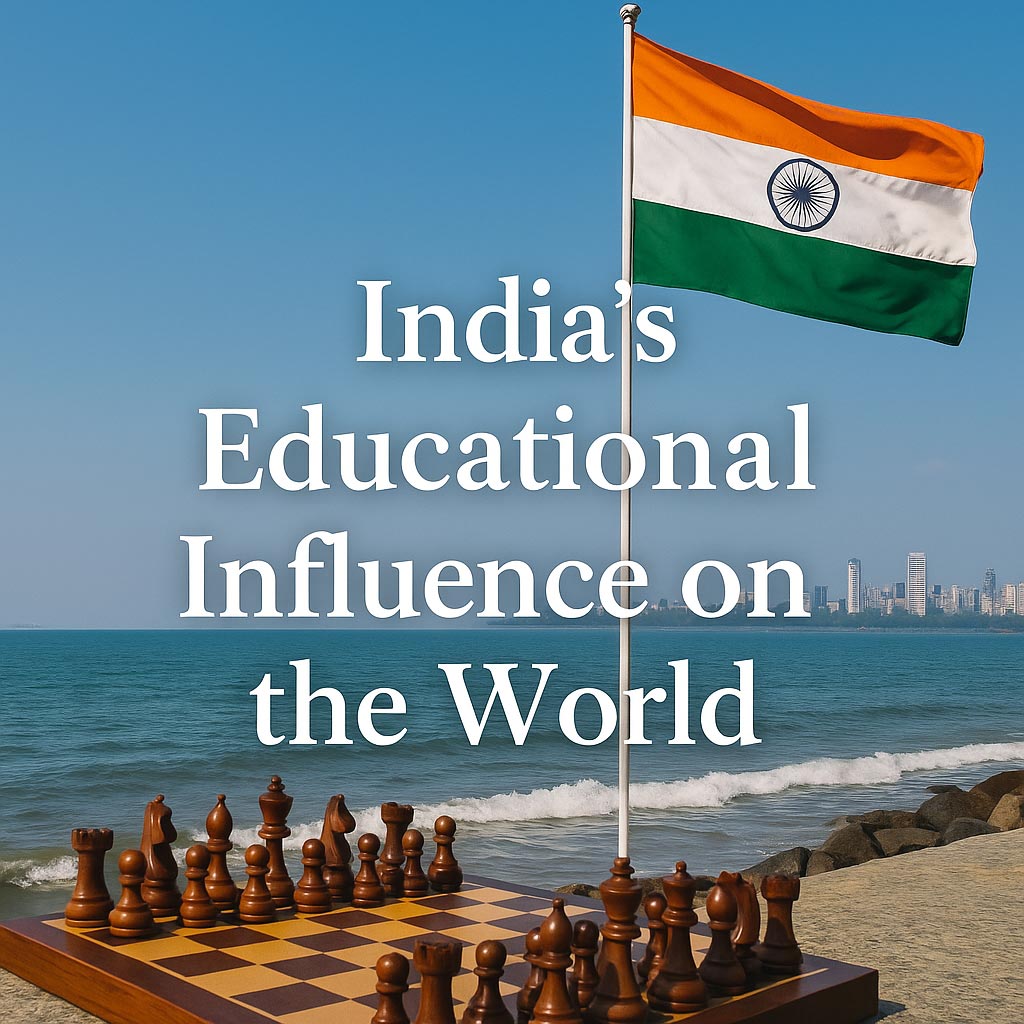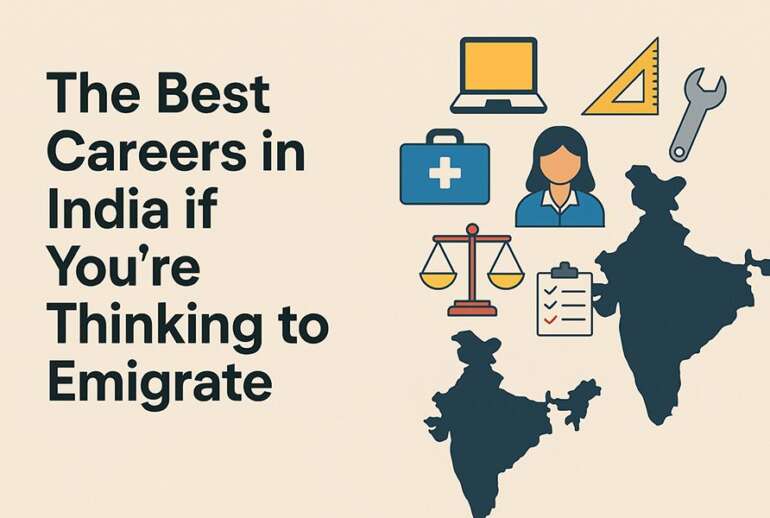India, one of the oldest continuous civilizations on Earth, has long been recognized as a cradle of learning and a fountainhead of knowledge across disciplines.
This intellectual legacy spans millennia, influencing not just Eastern philosophy and spirituality but also contemporary global domains such as chess, science, medicine, massages and holistic wellness. The echoes of ancient Indian learning are now woven into the fabric of global thought, education, and culture.
From ancient systems of logic and mathematics to spiritual teachings and modern scientific innovations, the Indian education tradition has radiated outward, touching cultures across the globe.
The Ancient Roots: India as a Knowledge Civilization
India’s educational influence can be traced back to ancient centers like Takshashila (considered the world’s first university) and Nalanda, which attracted students and scholars from China, Korea, Central Asia, and the Middle East as early as the 5th century CE.
These institutions were known for rigorous training in subjects like mathematics, astronomy, medicine (Ayurveda), philosophy, and linguistics, establishing India as a beacon of intellectual pursuit long before the rise of universities in the West.
The Gurukul system—based on close mentorship, experiential learning, and holistic education—also influenced early pedagogical models worldwide. India’s ancient educational paradigm was not confined to texts and abstract knowledge but integrated physical, moral, and spiritual development.
Chess: A Global Game with Indian Origins
One of the most visible examples of India’s influence on global education and strategy is the game of chess, which originated in India around the 6th century CE under the name Chaturanga.
This game was more than mere entertainment—it was a training tool for strategic thinking, simulating battlefield tactics and enhancing mental agility. From India, Chaturanga spread to Persia (where it became Shatranj), then to the Islamic world and Europe, evolving into the modern game of chess.
Today, chess is recognized as a cognitive sport, used in educational systems worldwide to promote:
- Problem-solving
- Patience and foresight
- Spatial reasoning
- Strategic planning
Modern India continues to be a powerhouse in global chess. Grandmasters like Viswanathan Anand have inspired generations, while Indian schools integrate chess into their curriculum to foster analytical skills and discipline. This global embrace of chess is a testament to India’s enduring contribution to cognitive education.
Science and Mathematics: India’s Global Footprint
Indian contributions to science and mathematics have fundamentally shaped the global knowledge ecosystem. Some of the most profound influences include:
1. The Decimal System and Zero
The concept of zero (śūnya), a foundational innovation for modern mathematics and computing, was developed by Indian mathematicians like Aryabhata and Brahmagupta. The decimal system and the place-value notation—now used universally—also originated in India.
2. Astronomy and Calendrical Science
Ancient Indian astronomers calculated planetary movements, solar and lunar eclipses, and even estimated the Earth’s circumference with remarkable accuracy. Works like the Surya Siddhanta show an advanced understanding of trigonometry and celestial mechanics.
3. Medicine and Surgery
Ayurveda, India’s traditional system of medicine, is now studied and practiced around the world. Indian physicians like Sushruta (author of the Sushruta Samhita) were pioneers in surgical techniques centuries before similar practices became common in Europe.
Modern integrative medicine increasingly acknowledges Ayurvedic principles for their focus on prevention, balance, and natural healing—especially in areas like nutrition, herbal therapy, and mind-body medicine.
Massage and Wellness: The Indian Body-Mind Connection
The Indian approach to education has never been limited to the intellect. Traditional systems like Ayurveda, Yoga, and Marma therapy reflect a holistic view where the mind, body, and spirit are integrated parts of learning and well-being.
Ayurvedic Massage
Ayurvedic massage, or Abhyanga, is a therapeutic practice that uses medicated oils and specific techniques to detoxify, rejuvenate, and balance the body’s systems. This ancient method is now integrated into:
- Wellness retreats in Europe and North America
- Spa treatments in luxury hotels globally
- Complementary therapies in holistic clinics
Ayurvedic massage is more than physical relief—it is considered educational for the body, teaching the nervous system to relax, realign, and regenerate.
Yoga as Global Education
Yoga, though often categorized as fitness today, is historically an educational discipline aimed at self-realization. Patanjali’s Yoga Sutras codified a system that balances ethics, physical postures, breath control, and meditation—now taught in schools, prisons, military academies, and universities worldwide.
This dissemination has made India a central node in global wellness education, influencing lifestyles, stress management strategies, and physical education curricula.
India’s Intellectual Diaspora
Beyond historical legacies, India’s modern intellectual diaspora has played a crucial role in exporting educational values globally. From Nobel laureates like Amartya Sen and Venkatraman Ramakrishnan to tech leaders like Sundar Pichai and Satya Nadella, Indian thinkers shape innovation and leadership across continents.
Indian-origin professors, scientists, doctors, and educators populate the faculties of the world’s top institutions, contributing to:
- STEM education reform
- Policy design
- Philosophical discourse
- Cross-cultural pedagogy
Their influence helps bridge Eastern and Western models of knowledge, fostering more inclusive and globally minded educational frameworks.
Inspirational Philosophies in Modern Classrooms
The principles of Indian education—such as self-discipline (tapas), continuous inquiry (jñāna), and non-violence (ahimsa)—have inspired educational philosophies globally. Gandhi’s Nai Talim emphasized “learning by doing,” a precursor to modern experiential education.
Rabindranath Tagore’s Santiniketan, blending arts, nature, and free thinking, predates and parallels progressive schools like Montessori or Waldorf in its child-centered, creativity-focused pedagogy.
Today, teachers and reformers across the globe study Indian thinkers to implement holistic, mindful, and character-based education.
Challenges and the Path Forward
While India has deeply influenced global education, there are challenges. Internally, the country still struggles with inequities in access, rote learning systems, and underfunding. However, Indian thought continues to offer valuable models for:
- Multidisciplinary education
- Intercultural literacy
- Spiritual intelligence in learning
By reaffirming its ancient traditions while innovating through modern science, India is poised to expand its global educational impact in the 21st century.
Conclusion
India’s contribution to world education is both ancient and evolving. From the birth of chess as a cognitive tool, to the formulas of algebra and astronomy, to the spiritual and bodily education of yoga and massage, India’s intellectual legacy continues to inspire.
In a time when the world is rethinking education—seeking purpose, balance, and resilience—India’s teachings resonate with renewed relevance. They remind us that education is not just about acquiring skills but about cultivating wisdom, compassion, and self-awareness.
Whether through the precision of mathematics, the strategy of chess, or the stillness of meditation, India’s influence remains a guiding light in humanity’s ongoing pursuit of knowledge.



